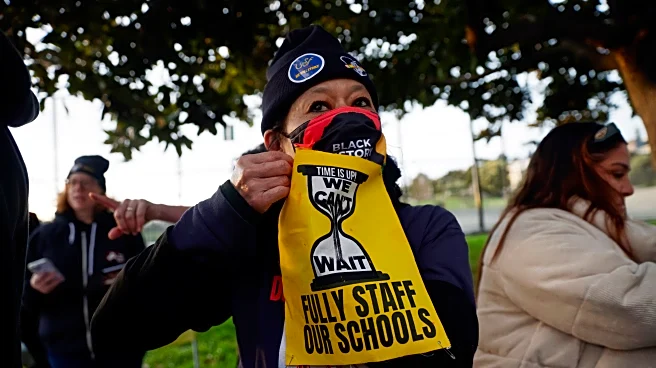Rapid Read • 8 min read
The Kremlin has issued a response to President Trump's recent announcement regarding nuclear submarines. Dmitry Peskov, a spokesperson for the Kremlin, stated that Russia does not wish to engage in a polemic with President Trump over the issue. Peskov emphasized that U.S. submarines are already on combat duty, downplaying the significance of Trump's comments. He highlighted Russia's commitment to nuclear non-proliferation and urged caution in nuclear rhetoric. Additionally, the Kremlin is anticipating a visit from U.S. envoy Steve Witkoff, which is considered important and potentially helpful, with a possible meeting with President Vladimir Putin.
AD
The Kremlin's response underscores the delicate nature of nuclear rhetoric and the importance of maintaining stability in international relations. President Trump's actions and statements regarding nuclear capabilities can have significant implications for global security and diplomatic relations. Russia's call for caution reflects concerns about escalating tensions and the potential for misinterpretation or conflict. The upcoming visit of U.S. envoy Witkoff may provide an opportunity for dialogue and easing tensions between the two nations, which is crucial for maintaining peace and cooperation.
The visit of U.S. envoy Steve Witkoff to Russia is expected to be a significant diplomatic event, with potential discussions with President Putin. This visit could lead to further dialogue on nuclear non-proliferation and other bilateral issues. The international community will be closely monitoring these developments, as they may influence future diplomatic strategies and security policies. Stakeholders, including political leaders and international organizations, may react to these discussions and any agreements or statements that emerge.
The situation highlights the ongoing challenges in U.S.-Russia relations, particularly concerning nuclear capabilities and rhetoric. It raises questions about the ethical responsibilities of world leaders in managing nuclear arsenals and the importance of diplomatic communication. Long-term implications may include shifts in international alliances and strategies for nuclear non-proliferation, as well as the role of diplomatic envoys in mitigating tensions.
AD
More Stories You Might Enjoy












